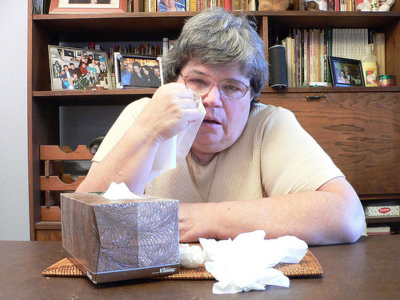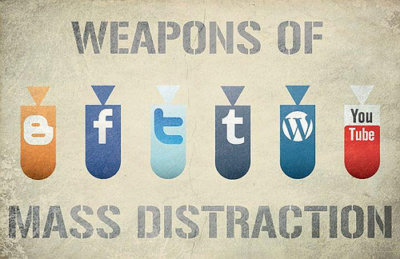Cyberchondria – Are You Addicted to Looking up Illness?

By: Ray_from_LA
What is ‘cyberchondria’, and is this your problem? Read on.
What is cyberchondria?
Cyberchondria is a term coined to describe the unique effect of having extensive amounts of information readily at our disposal when we fear we might be ill. The internet has now become a place where hypochondriacs can seek out as much analysis as they could ever possibly need about what might be wrong with them. This feeds into their anxieties to the point of psychological paralysis.
Note that googling your symptoms once in a while does not a cyberchondriac make — it’s normal. It’s when the anxiety this decision causes ruins your day or even your week that you are in trouble.
An example of cyberchondria
You’re feeling a bit unwell. Maybe you have a headache, or muscle tension you can’t get rid of. Or you’ve noticed a nasty rash that has yet to disappear. You ring your doctor, but the only appointment available is over a week away. In the meantime, you type your symptoms into Google to see if anyone has any ideas…
For a normal person, five minutes later they have some information on what their sickness might be, but they aren’t overreacting. They’ll wait for their doctor’s input. And with that, they get on with their day.
But there is a growing number of us who instead wade through tens of pages of diagnoses in a growing panic. Our internet result starts out looking relatively minor, but following one possible diagnoses to the next leads quite possibly to finding a condition you can die from. The panic grows, as do the search terms, you begin with the dramatic black and white thinking, and so begins the vicious cycle now known as “cyberchondria”.
As for the rest of your day, forget it. Your worry is such you can’t focus on much else but your illness. Sound familiar?
Is cyberchondria really a problem?

By: Bev Sykes
Cyberchondria introduces unwanted fear and anxiety into your life. It’s not just worries about your health, but can grow into worries that you might lose your job, or lose your relationship, if the diagnosis you have found is true.
Nor is it as easy to deal with as one might think, either. It’s not necessarily a case of a quick trip to the doctor to get things sorted if you are a cyberchondriac. Many visits might leave your health fears still unresolved, as cyberchondria often breeds paranoia that can extend to not trusting doctors. Alternately, you might suffer low self-esteem that has you too embarrassed to ‘bother’ a doctor at all.
Left unchecked (or even unrecognised), cyberchondria can lead to being so anxious your self-care fails. If you are finding it difficult to socialise, eat, or leave the house, or if you call in to work and take a sick day you are so anxious, then you need help with your cyberchondria.
Cyberchondria can in some cases even lead to missing health care you really need. Sometimes the anxiety created by constant internet searches over your health can have you cancelling your doctor’s appointments out of fear of what the doctor will say. A study last year by the NHS- backed health watchdog the Information Standard found that four in ten people put off visiting their GP and one in six were told they had a ‘lucky escape’ when they finally did get a proper diagnosis.
Why would someone develop cyberchondria?
Like many anxiety and panic disorders, cyberchondria can be a case of misplaced worry. In other words, if something else in life is overwhelming us, we can use cyberchondria as a sort of unhealthy distraction.
An example of this is losing a loved one. Instead of dealing with your bereavement, you might instead distract yourself by worrying you might inherit a similar sickness that the deceased suffered from.
Or it can be as simple as being depressed or worried about work, money, or a relationship. Instead of admitting to our low moods becoming obsessed with our health. If anything threatens our confidence, we can start to worry that we are literally falling apart.
It’s also important to factor in the way in which health-related news is reported on online. News websites have tapped in to the stream of revenue which comes as a result of people looking up health horror stories on the internet. If they keep churning out stories about the health hazards of particular foods or lifestyle choices, people will keep on clicking.
A particularly dangerous element of this kind of scare-mongering is stories which contain allusions to negligence on the part of doctors. Stories about health professionals failing to diagnose dangerous illnesses promote the idea that you should keep relying on the internet to provide you with the information you need.
5 tips for sufferers of cyberchondria
What do you need to know if this is you?
1. Remember that health websites are not always trustworthy and should be viewed with scepticism.
A particular website may have backing from a particular drugs provider and therefore have a vested interest in making people believe they are unwell. Other websites may use health-scare stories as ‘clickbait’ to gain new readers.
Ultimately, if you’re going to Google your symptoms, it’s best to stick to recognised experts. For example, Cancer Research UK has a handy symptom checker on their website while NHS Choices regularly updates a ‘Behind the Headlines’ column, specifically to debunk bogus claims.

By: Jeffrey
2.It might be better to ban yourself from searching.
It’s a better idea to make an appointment with a doctor if you’re worried about something.
3. Remember that search engine rankings are not any indicator of how serious your symptom is.
If you type in a benign symptom to a search engine and immediately see mentions of cancer or another chronic illness, it doesn’t mean anything other than good marketing tactics on the part of the website provider. The order that the websites are listed in has no other significance.
4. Go easy on yourself – you’re not ‘mad’ for worrying.
A combination of culture, technology and the fast pace at which we now all live is also responsible for the growing rate of cyberchondria. It’s not something you can easily snap out of ,and feeling guilty about it will only make you feel worse.
5. If you cannot see a way out of your worries, talk to your GP or to a qualified counsellor.
They can help you to work through your feelings and access the root of your problem. As mentioned earlier, health anxieties are very rarely only about physical illness, and a counsellor or psychotherapist can help you get to the root of what is really troubling you.
Do you suffer from cyberchondria? Have you found other ways to deal with it? Feel free to comment or share your story below, we love hearing from you.





